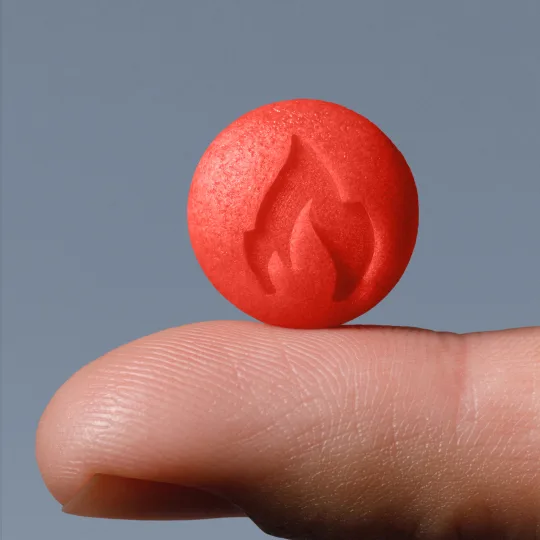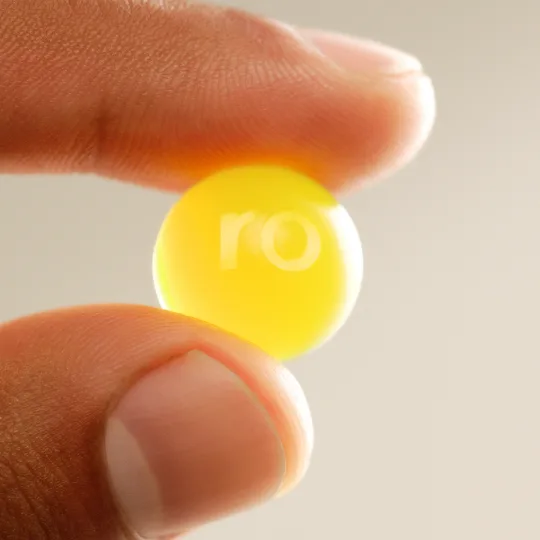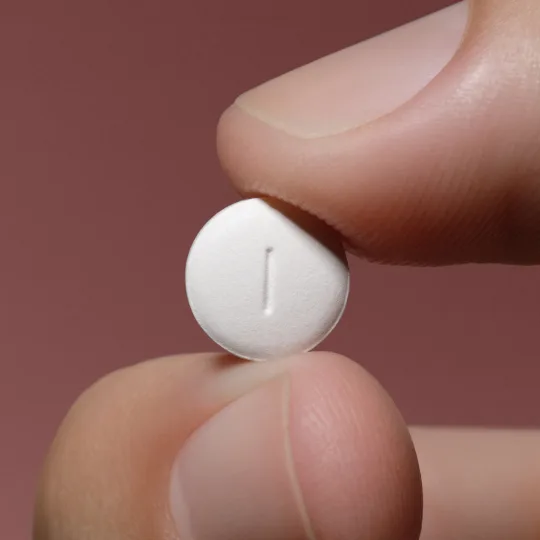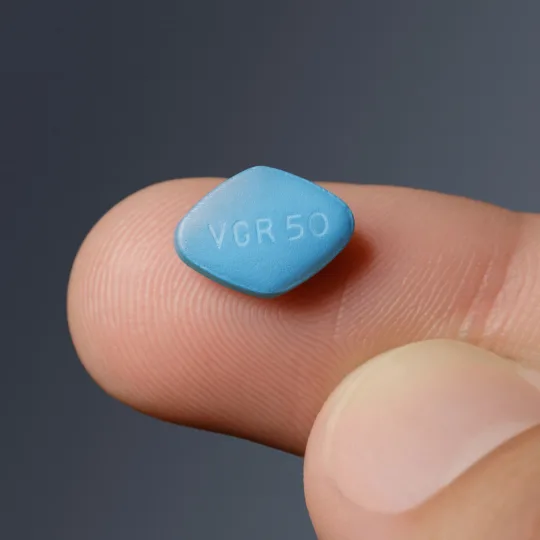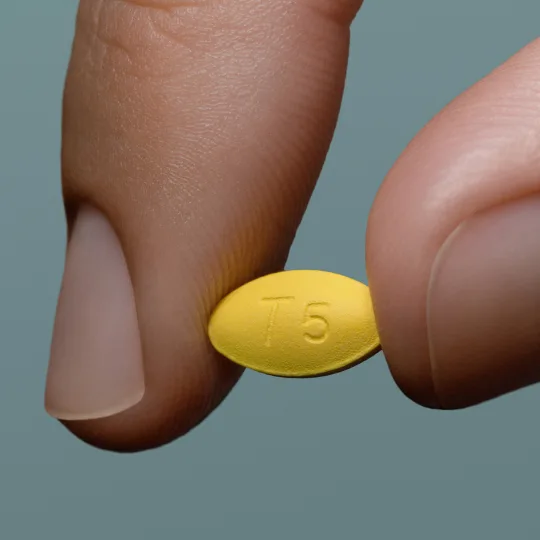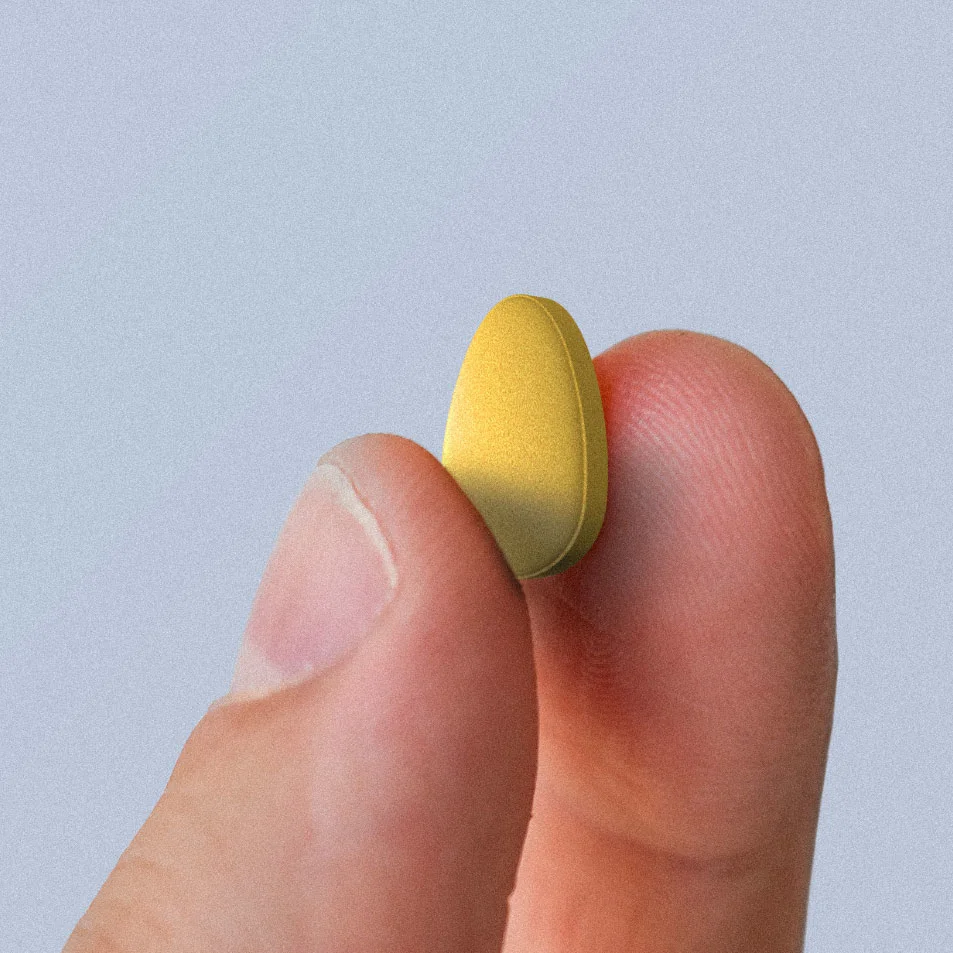Key takeaways
Aspirin has many uses for pain relief and heart health, but its role in erectile dysfunction (ED) is unclear.
Small studies suggest a possible benefit, but the overall evidence is weak and inconsistent.
Aspirin is not a recommended or proven treatment for ED and may be unsafe for some people.
Proven treatments for ED, depending on the cause, include medications like Viagra or Cialis, mental health counseling, and lifestyle modifications.
Here's what we'll cover
Here's what we'll cover
Here's what we'll cover
Key takeaways
Aspirin has many uses for pain relief and heart health, but its role in erectile dysfunction (ED) is unclear.
Small studies suggest a possible benefit, but the overall evidence is weak and inconsistent.
Aspirin is not a recommended or proven treatment for ED and may be unsafe for some people.
Proven treatments for ED, depending on the cause, include medications like Viagra or Cialis, mental health counseling, and lifestyle modifications.
One of the most widely used over-the-counter (OTC) medications, Aspirin, helps ease pain, swelling, and fever. It also acts as an anti-platelet medication (blood thinner), which is why some people take it daily to prevent heart problems. But could it have another use? Could you take aspirin for erectile dysfunction (ED)?
In theory, it makes sense: Erections depend on healthy blood flow, and aspirin can promote healthy circulation. But theory and reality don’t always match up, and the little research we have on the topic hasn’t shown any definitive benefits of taking aspirin for ED.
Keep reading to understand the connection between aspirin and erectile dysfunction, and dive into some better options for improving erections.
What is the link between aspirin and erectile dysfunction?
Aspirin and ED have likely been linked by some — at least in theory — because of their respective relationships to blood flow. Let’s explore this.
Erectile dysfunction is when you consistently can’t get or keep an erection firm enough for sex. It can happen for many reasons, but poor blood flow is a common culprit. That’s because the blood vessels and healthy blood flow play key roles in making erections happen. It’s well known that blockages in the arteries or other problems with the blood vessels get in the way of heart and brain health, but these issues can also affect sexual health. This is where aspirin may enter the ED conversation — because both involve circulatory health.
Aspirin is an anti-inflammatory drug that prevents platelets from clumping together, making blood less likely to clot. By preventing clotting and helping blood move more easily, aspirin can support healthy circulation and lower the risk of cardiovascular problems — such as heart attacks and strokes — in certain people.
Since both ED and cardiovascular disease are often linked to narrowed arteries (atherosclerosis), researchers have questioned whether aspirin’s circulatory benefits could also improve erections. However, the effect isn't clear: aspirin can boost nitric oxide, a chemical that relaxes blood vessels, which is important for erections. At the same time, aspirin decreases molecules called prostaglandins, which normally widen blood vessels, so reducing them could work against healthy erectile function. Because of these opposing effects — and because clinical studies have shown mixed results — it’s unclear whether aspirin helps, harms, or has any real impact on ED.
Note that ED can be an early warning sign of cardiovascular disease, but that doesn’t mean everyone with ED should take aspirin. Aspirin has long been studied for cardiovascular protection, but bleeding risks may outweigh the benefits for some people. Even though aspirin is OTC, it’s important to talk to your healthcare provider before you start taking it regularly.
Have better sex with Ro
Research on aspirin for erectile dysfunction
So far, research on aspirin and erectile dysfunction (ED) is limited and the results are mixed:
One randomized controlled trial included 184 men with ED caused by poor blood flow. Participants were randomly assigned to take either 100 mg of aspirin or a placebo every day for six weeks. At the end of the study, participants in the aspirin group reported more improvement in erections compared to those who took placebo.
A 2020 meta analysis combined the above trial with another small study, for a total of just over 200 men. The analysis found that men with ED who took aspirin reported modest improvement. However, the researchers emphasized that more, larger studies are needed to learn whether aspirin could be beneficial for ED.
A systematic review that included aspirin and other anti-inflammatory medications found mixed outcomes, with some studies suggesting no effect and some even raising the possibility of harm. The evidence was too inconsistent to draw clear conclusions.
A genetic study observed that aspirin might be linked to a higher risk of ED in men of European ancestry. While this type of study can’t prove cause-and-effect, it still raises questions about whether aspirin use could actually worsen ED in some populations.
Overall, the current evidence is inconclusive. So, if you’re looking for a proven or recommended treatment for ED, aspirin isn’t one of them.
Does aspirin work like Viagra?
No, aspirin does not work like Viagra.
Viagra (sildenafil) is a PDE5 inhibitor medication that works directly on blood vessels in the body. It works by blocking an enzyme called phosphodiesterase type 5 (PDE5). This helps blood vessels relax so more blood can flow into the penis, making it easier to get and keep an erection when aroused.
As a non-steroidal anti-inflammatory drug (NSAID) antiplatelet agent, aspirin blocks an enzyme called cyclooxygenase (COX) to reduce inflammation and prevent platelets in the blood from clumping together. That’s why aspirin is sometimes prescribed to help lower the risk of heart attack or stroke in certain people.
While both types of medications affect blood flow, they work in very different ways, so their effects on ED are quite different.
Can you take aspirin and Viagra together?
Yes, in most cases it is safe to take aspirin and Viagra at the same time. If your healthcare provider prescribed Viagra for ED and also told you to take a daily aspirin for a separate health concern, it’s okay to take them together. Research shows no interactions between aspirin and sildenafil (the active ingredient in Viagra).
However, if you have heart problems or have had a recent heart attack, sex can strain your heart, which may be unsafe. If your healthcare provider advised you to take aspirin after a recent heart attack, check in with them to see if you are cleared for sex and before taking any ED medications, such as Viagra.
Some people may ask: “Will aspirin help Viagra work better?” It’s unlikely. Current evidence shows that aspirin doesn’t affect how Viagra is absorbed or how long it works in the body, or vice versa.
How much aspirin should you take for erectile dysfunction?
There’s no official or recommended dosage of aspirin for ED. That’s because the United States Food and Drug Administration (FDA) has never approved it for this use and there’s not much evidence showing it works for ED — and, in some cases, it could even be harmful. So, if you are wondering how much aspirin to take for erectile dysfunction, the best advice is not to take any, since there’s no safe or proven amount.
For context, the typical dose of aspirin ranges from 81 mg (often called “baby aspirin” — a daily low dose that some people take for cardiovascular health) to 500 mg. Higher doses are generally used as needed to reduce fever or relieve occasional pain such as headaches, toothaches, menstrual pain, or joint pain. Though aspirin can be obtained over-the-counter, its use is typically directed by medical professionals.
If you’re considering aspirin for ED, it’s best to avoid it and speak with a healthcare provider about safe, proven treatments for ED. Because aspirin can cause bleeding and other side effects, you should not take it on a regular basis without discussing it with a healthcare provider and making sure it’s safe for you.
Risks of taking aspirin for erectile dysfunction
Aspirin is generally safe for many adults when used as directed for pain relief or, in some cases, to lower cardiovascular risk. But it is not a safe or proven treatment for ED.
Like any medication (yes, even over-the-counter medications), aspirin carries risks. Common adverse effects include indigestion, stomach pain, and nausea. Serious side effects are possible, such as allergic reactions or bleeding of the gastrointestinal tract, which may show up as brown-appearing vomit or stool that looks black or bloody.
Aspirin is not safe for everyone. People over 60, those with a history of heavy alcohol use, ulcers or bleeding problems, and anyone taking blood thinners, steroids, or other NSAIDs face a higher risk of bleeding; these people should only take aspirin if their healthcare provider deems it safe for them. Aspirin should be avoided by children and teens recovering from viral illnesses due to the risk of Reye’s syndrome.
Talk with a healthcare provider before taking aspirin, especially if you have asthma, frequent heartburn, high blood pressure, heart disease, liver or kidney problems, or if you are pregnant, breastfeeding, or scheduled for surgery.
Alternatives to aspirin for erectile dysfunction
Aspirin isn’t a proven or recommended treatment for ED. The good news is there are several other options that are approved by the FDA and/or backed by strong evidence. Depending on the cause of ED, effective treatments can include prescription medications, counseling or stress management, lifestyle changes, or a combination of approaches.
Prescription medications
The most popular FDA-approved ED treatments are PDE5 inhibitors including Viagra (sildenafil), Cialis (tadalafil), vardenafil, and Stendra (avanafil). These pills work in part by increasing blood flow to the penis, making it easier to get and maintain an erection. They work well for many men but aren’t safe to use with nitrates and may interact with certain blood pressure medications.
Additional options for those interested in PDE5 inhibitors include:
Ro Sparks, a dissolvable, under-the-tongue tablet that contains a combination of tadalafil and sildenafil — the active ingredients in Cialis and Viagra, respectively.
Daily Rise Gummies, a daily tadalafil gummy that keeps you ready for sex at all times for more spontaneity.
While these last two formulations are not specifically FDA-approved, they can be prescribed off-label because their active ingredients are FDA-approved for treating ED.
If ED pills don’t work or can’t be used, additional medication options include injections such as alprostadil (Caverject). These medications work well and typically do not require arousal to result in an erection.
Mental health care
Stress, anxiety, depression, and relationship issues can all contribute to ED. Working with a therapist can reduce anxiety and improve sexual confidence. If you are still experiencing morning erections but facing an issue getting an erection during sexual activity, that can be a sign of ED related to psychological issues.
Lifestyle modifications
Healthy habits can support better erections. Regular exercise, weight loss in men with overweight, quitting smoking, drinking less alcohol in those with excessive alcohol use, and managing underlying health conditions are all important for sexual (and overall) health. Pelvic floor exercises can also help strengthen the muscles involved in erections. Such lifestyle changes (especially including regular exercise in your routine) can decrease the symptoms of ED over time. Of course, be sure to discuss major lifestyle changes with your healthcare provider before abruptly altering your routine.
Bottom line
Aspirin is not a recommended treatment for ED, and because it carries risks, you should not take it without medical guidance. Safer, proven ED treatments are available and should be discussed with a healthcare provider.
Aspirin isn’t proven for ED. A few small studies suggest it might help, but the evidence is too weak and conflicting to support taking aspirin for ED.
Aspirin isn’t safe for everyone. Aspirin can cause serious bleeding problems, such as gastrointestinal bleeding which can be life-threatening in severe cases. This risk is higher in people with certain health conditions and those taking blood thinners and other medications that raise the risk of bleeding.
Effective ED treatments are available. Prescription medications, lifestyle changes, and counseling can all be effective, evidence-based alternatives for managing ED. Discuss further options with your healthcare provider.
Frequently asked questions (FAQs)
Can taking aspirin help with erectile dysfunction?
Aspirin is not an approved or proven treatment for ED. A few small studies suggest it might improve blood flow, but the evidence is weak and inconsistent. Safer, more effective options include prescription medications that are FDA-approved for the treatment of ED and healthy lifestyle changes.
How much aspirin to improve circulation?
Low-dose aspirin (for example, 81 mg daily) is sometimes prescribed to lower the risk of heart attack or stroke in certain people. But it is not meant to improve circulation for erectile dysfunction. The dose and need for aspirin depend on your health history, so you should never start or change daily aspirin therapy without professional guidance.
What is a quick fix for erectile dysfunction?
There is no single “quick fix” for ED, since the best treatment depends on its cause. Generally, the fastest acting options are prescription pills like Viagra (sildenafil), which can start working within 30–60 minutes and Stendra (avanafil), which can sometimes kick in within 15 minutes.
You can also consider taking Ro Sparks (a dissolvable, under-the-tongue form of sildenafil + tadalafil) or Daily Rise Gummies (a daily gummy containing tadalafil). While the FDA doesn’t approve these last two specific formulations, their active ingredients are individually FDA-approved to treat ED and they are prescribed off-label at the discretion of healthcare providers.
If any of the oral medications are not an option for you, speak with your healthcare provider because you may have other options to improve your sex life.
DISCLAIMER
If you have any medical questions or concerns, please talk to your healthcare provider. The articles on Health Guide are underpinned by peer-reviewed research and information drawn from medical societies and governmental agencies. However, they are not a substitute for professional medical advice, diagnosis, or treatment.
Viagra Important Safety Information: Read more about serious warnings and safety info.
Cialis Important Safety Information: Read more about serious warnings and safety info.
References
Antithrombotic Trialists’ Collaboration. (2002). Collaborative meta-analysis of randomised trials of antiplatelet therapy for prevention of death, myocardial infarction, and stroke in high-risk patients. BMJ, 324(7329), 71–86. doi: 10.1136/bmj.324.7329.71. Retrieved from https://www.bmj.com/content/324/7329/71
Arif, H. & Aggarwal, S. (2023). Salicylic acid (aspirin). StatPearls. Retrieved on Aug. 29, 2025 from https://www.ncbi.nlm.nih.gov/books/NBK519032/
Arnett, D. K., Blumenthal, R. S., Albert, M. A., et al. (2019). 2019 ACC/AHA guideline on the primary prevention of cardiovascular disease: a report of the american college of cardiology/American heart association task force on clinical practice guidelines. Circulation, 140(11), e596–e646. doi: 10.1161/CIR.0000000000000678 Retrieved from https://pmc.ncbi.nlm.nih.gov/articles/PMC7734661/
Atallah, S., Haydar, A., Jabbour, T.,et al. (2021). The effectiveness of psychological interventions alone, or in combination with phosphodiesterase-5 inhibitors, for the treatment of erectile dysfunction:A systematic review. Arab Journal of Urology, 19(3), 310–322. doi: 10.1080/2090598X.2021.1926763. Retrieved from https://www.tandfonline.com/doi/full/10.1080/2090598X.2021.1926763
Bayraktar, Z. & Albayrak, S. (2018). Antiplatelet (aspirin) therapy as a new option in the treatment of vasculogenic erectile dysfunction: a prospective randomized double-blind placebo-controlled study. International Urology and Nephrololgy, 50(3), 411-418. doi: 10.1007/s11255-018-1786-0. Retrieved from https://pubmed.ncbi.nlm.nih.gov/29344879/
Burnett, A. L., Nehra, A., Breau, R. H., et al. (2018). Erectile dysfunction: AUA guideline. Journal of Urology, 200(3), 633. doi: 10.1016/j.juro.2018.05.004. Retrieved from https://www.auanet.org/guidelines-and-quality/guidelines/erectile-dysfunction-(ed)-guideline
Cheitlin, M. D., Hutter, A. M., Brindis, R. G., et al. (1999). Use of sildenafil (Viagra) in patients with cardiovascular disease: interaction with antiplatelet agents. Circulation, 99(1), 168–177. doi: 10.1161/01.CIR.99.1.168 Retrieved from https://www.ahajournals.org/doi/10.1161/01.cir.99.1.168
DailyMed. (2023). Bayer aspirin extra strength 500 mg. Retrieved from https://dailymed.nlm.nih.gov/dailymed/drugInfo.cfm?setid=0ae64cdb-4ea0-23af-e054-00144ff88e88
DailyMed. (2025). Bayer aspirin low dose tablet 81 mg. Retrieved from https://dailymed.nlm.nih.gov/dailymed/drugInfo.cfm?setid=075b103e-0bb4-4b7a-ac0e-5645bcbd0a07
Irfan, M., Ismail, S. B., Noor, N. M., & Hussain, N. H. N. (2020). Efficacy of aspirin for vasculogenic erectile dysfunction in men: a meta-analysis of randomized control trials. American Journal of Men's Health, 14(5), 1557988320969082. oi: 10.1177/1557988320969082. Retrieved from https://pmc.ncbi.nlm.nih.gov/articles/PMC7607788/
Leisegang, K. & Finelli, R. (2021). Alternative medicine and herbal remedies in the treatment of erectile dysfunction: A systematic review. Arab Journal of Urology, 19(3), 323–339. doi: 10.1080/2090598X.2021.1926753. Retrieved from https://www.tandfonline.com/doi/full/10.1080/2090598X.2021.1926753
Li, R., Peng, L., Deng, D., et al. (2024). Potential causal association between aspirin use and erectile dysfunction in European population: a Mendelian randomization study. Frontiers in Endocrinology (Lausanne), 14, 1329847. doi: 10.3389/fendo.2023.1329847 Retrieved from https://pmc.ncbi.nlm.nih.gov/articles/PMC10800513/
Li, T., Wu, C., Fu, F., Qin, F., et al. (2018). Association between use of aspirin or non-aspirin non-steroidal anti-inflammatory drugs and erectile dysfunction: A systematic review. Medicine (Baltimore), 97(28), e11367. doi: 10.1097/MD.0000000000011367. Retrieved from https://pmc.ncbi.nlm.nih.gov/articles/PMC6076183/
MedlinePlus. (2021). Aspirin. Retrieved from https://medlineplus.gov/druginfo/meds/a682878.html
Saigal, C. S., Wessells, H., Pace, J., et al. (2006). Predictors and prevalence of erectile dysfunction in a racially diverse population. Archives of Internal Medicine, 166(2), 207–212. doi: 10.1001/archinte.166.2.207. Retrieved from https://jamanetwork.com/journals/jamainternalmedicine/fullarticle/409619
Singh, S., Prasad, B., Savaliya, A. A., et al (2009). Strategies for characterizing sildenafil, vardenafil, tadalafil adulteration in health-care products. TrAC Trends in Analytical Chemistry, 28(1), 13-28. https://doi.org/10.1016/j.trac.2008.09.004. Retrieved from https://www.sciencedirect.com/science/article/abs/pii/S0165993608002045
Smith, B. P. & Babos, M. (2023). Sildenafil. StatPearls. Retrieved on Aug. 28, 2025 from https://www.ncbi.nlm.nih.gov/books/NBK558978/
Uddin, S. M. I, Mirbolouk, M., Dardari, Z., et al. (2018). Erectile dysfunction as an independent predictor of future cardiovascular events: the multi-ethnic study of atherosclerosis. Circulation, 138(5), 540-542. doi: 10.1161/CIRCULATIONAHA.118.033990. Retrieved from https://pubmed.ncbi.nlm.nih.gov/29891569/
U.S. Preventive Services Task Force, Davidson, K. W., Barry, M. J., et al. (2022). Aspirin use to prevent cardiovascular disease: US preventive services task force recommendation statement. JAMA, 327(16), 1577–1584. doi: 10.1001/jama.2022.4983. Retrieved from https://jamanetwork.com/journals/jama/fullarticle/2791399


